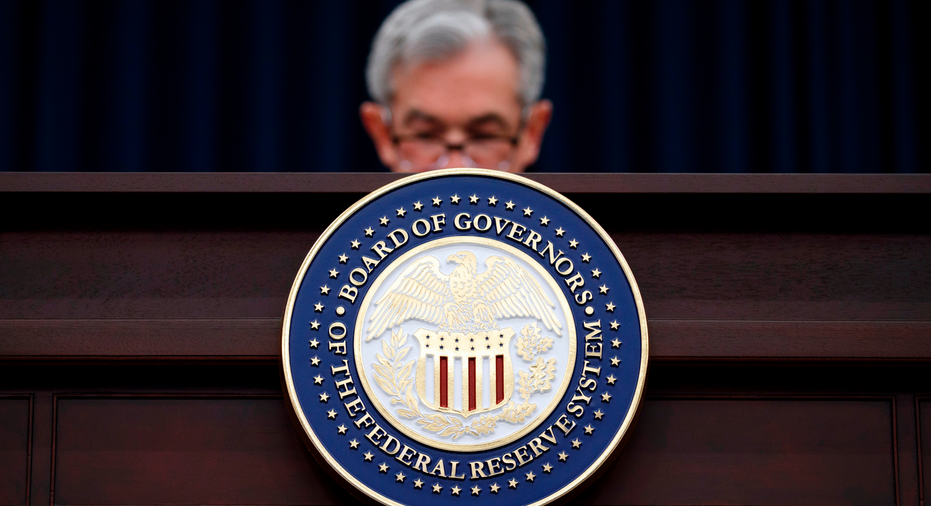Banks would be freer to trade for profit under Fed proposal

WASHINGTON – The largest U.S. banks would have leeway to take riskier trading bets for their own profit under proposed changes the Federal Reserve unveiled Wednesday.
The changes would loosen rules that since the 2008 financial meltdown have barred big banks from using depositors' money to make sizable bets on stocks and bonds. The Fed now wants to relax these regulations, thereby giving Wall Street greater ability to engage in profit-making trades.
The action the Fed proposed Wednesday would make it easier for all banks to comply with the Volcker Rule, while giving the greatest relief to banks that do less trading. The rule, established under the 2010 Dodd-Frank financial regulation law, was designed to limit the high-risk trading that big banks could do. Those financial institutions needed taxpayer-funded bailouts after the 2008 crisis — a meltdown that was ignited by their excessive risk-taking.
The changes would be applied according to how much trading banks do. At the upper level would be banks with at least $10 billion in trading assets and liabilities. Fed officials said 18 banks fall into that category, accounting for 95 percent of U.S. bank trading and include some foreign banks with U.S. operations.
Less stringent requirements would apply to banks that do less trading. The idea is to give the banks greater clarity on their permissible trading activity without sacrificing their financial soundness, the officials said.
In addition, banks with less than $1 billion in trading assets would be exempt from the requirement that the CEO vouch each year for the bank's compliance.
"Our goal is to replace overly complex and inefficient requirements with a more streamlined set of requirements," Fed Chair Jerome Powell said at a meeting of the central bank's governors.
The move coincides with other government efforts to ease financial regulations and protections that were tightened after the 2008 crisis. President Donald Trump has pushed for such changes, arguing that the stricter financial regulations have constrained economic growth.
Congress has, for example, loosened requirements on how much capital smaller banks must keep as a base to cushion against unexpected big losses. And the Trump administration has significantly scaled back the reach of the Consumer Financial Protection Bureau, which was established to safeguard consumers against financial abuses.
Other U.S. financial regulatory agencies, including the Federal Deposit Insurance Corp. and the Securities and Exchange Commission, will discuss and possibly approve the Fed's proposal in their own meetings in coming weeks. The proposal will be opened to public comment for 60 days.
The Volcker Rule is named for Paul Volcker, a Fed chairman in the 1980s who was an adviser to President Barack Obama during the financial crisis. Volcker urged a ban on deposit-funded, high-risk trading by big banks, arguing that it would help prevent future economic crises.
The use of depositors' money by banks to make high-risk trading bets for their own profit is known as proprietary trading. For years, it was a huge money-making activity for Wall Street mega-banks like Goldman Sachs, JPMorgan Chase and Morgan Stanley. Proprietary trading allowed big banks to tap depositors' money in federally insured bank accounts — essentially borrowing against that money and using it for investments.
Under the Volcker Rule, banks have been limited to trading mainly on behalf of their clients rather than for themselves. But they have pushed back against the rule, and the Trump administration has been sympathetic.
Financial industry groups welcomed the proposal Wednesday, while consumer and investor advocates expressed alarm.
The proposal "is an attempt to unravel fundamental elements of the response to the 2008 financial crisis, when banks financed their gambling with taxpayer-insured deposits," Marcus Stanley, policy director at Americans for Financial Reform, said in a statement. "If implemented, these proposals could turn the Volcker Rule into a dead letter."
The Fed is an independent regulator that asserts its separation from political pressure and the White House. Trump, though, has had an unusual opportunity to put his stamp on the central bank by filling several key positions on the seven-member Fed board.
Powell, the new Fed chairman since February, was a board member under the previous Fed leader, Janet Yellen, and before that was an investment banker. After Trump named him Fed chief, Powell told Congress that he believes the rules enacted after the 2008 crisis could be improved, though he is not thought to back the administration's ambition of aggressively rolling back regulations.
One key Trump appointee on the Fed board, Randal Quarles, a former investment banker, is the Fed's top overseer of Wall Street and the leader in seeking to ease financial regulation. He has said the package of rules under Dodd-Frank should be overhauled but not scrapped.



















